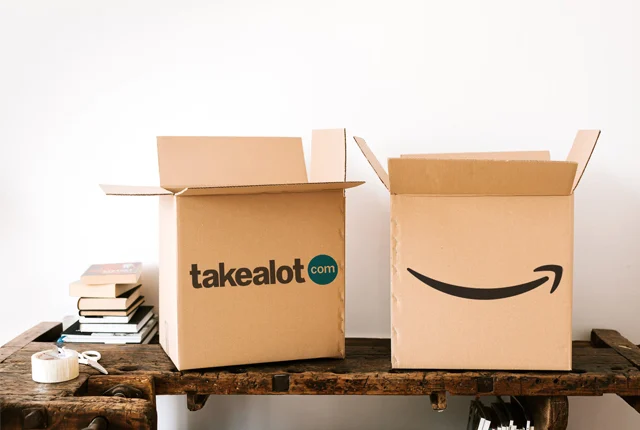Takealot Finds Itself At A Point Where Amazon’s Shadow Looms Large

As Amazon sets its sights on South Africa’s burgeoning e-commerce landscape, Takealot, the current market leader, faces a daunting challenge reminiscent of scenarios in other regions where the tech giant entered as a latecomer and went on to dominate. This raises concerns about Takealot’s ability to withstand the impending onslaught.
In India, Amazon entered the e-commerce arena in 2013, six years after the Walmart-owned local leader Flipkart was established. However, Amazon’s deep pockets, logistical expertise, and customer-centric approach allowed it to outpace competitors and establish dominance. The story repeated in Mexico, where Amazon’s entry reshaped the market, overshadowing established local players.
Now, as South Africa becomes the next battleground, Amazon’s entry might be another signal of its strategic prowess and tendency to bide its time in a bid to invade so-called rest-of-world markets already adopting online shopping rather than those where a lot of foundational work would yet be required.
Naspers, the parent company of Takealot, recognizes the threat and is intensifying investments to fortify its position. Phuthi Mahanyele-Dabengwa, CEO of Naspers’s South African unit, emphasizes their preparedness, stating in a recent interview, “We are well positioned towards being able to deal with whatever could be coming from Amazon.”
South Africa, with its developed economy and a sizeable upper-middle-income market, is an attractive prospect for global retail giants, including Walmart. Takealot, with its current dominance and expansion strategies, including one-hour delivery services, aims to secure its position in the face of Amazon’s impending entry.
However, history suggests that Amazon’s disruptive impact cannot be underestimated. The global giant’s modus operandi involves leveraging resources, logistical efficiency, and a relentless focus on customer satisfaction to rapidly overtake established players. The 30 percent surge in online retail sales to ZAR 55 B (~USD 2.9 B) in 2022 in South Africa, reported by World Wide Worx, underscores the market’s momentum and attractiveness.
As Takealot navigates this challenging landscape, the local e-tailer is contending with a track record that showcases Amazon’s ability to redefine market dynamics. The key for Takealot, stakeholders opine, lies not only in understanding its local market but also in adapting to the dynamic changes that Amazon is likely to introduce.
The battle between Takealot and Amazon in South Africa is poised to unfold, echoing past scenarios in India and Mexico. Whether Takealot can defend its position or succumbs to the disruptive force of Amazon remains uncertain, but the challenge is clear, and the outcome is poised to shape the future of e-commerce in the region.